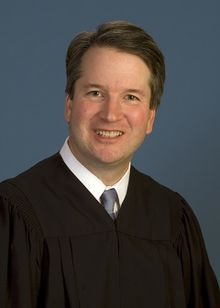Tuesday morning, Trevor Potter of the Campaign Legal Center and Fred Wertheimer of Democracy 21 held an event at the National Press Club in Washington, D.C., to discuss the upcoming Supreme Court case, McCutcheon v. FEC, scheduled for oral argument on October 8. As prominent leaders of the movement to further restrict free speech, Potter and Wertheimer’s comments offered a glimpse into the ideology behind self-proclaimed campaign finance “reformers,” which roughly amounts to: be afraid, be very, very, afraid. Also, don’t think too much.
The legal arguments on display were simplistic and unsatisfying. Potter and Wertheimer want the Court to follow precedent by upholding aggregate limits, but seem uninterested in considering whether or not the Court got the decision right in the first place (that being 1976’s Buckley v. Valeo). Any restriction on a person’s ability to speak or associate with others for speech demands justification, but Potter and Wertheimer don’t seem to operate with this in mind. The duo put the burden of proof on the speaker, rather than the censor, in an inexplicable and wrongheaded approach to First Amendment cases.
The event was primarily an exercise in wild speculation on the effects of striking down aggregate limits. Both men assert that striking down aggregate limits will allow candidates and donors to circumvent the base limits by using joint fundraising committees (or JFCs, because everything sounds scarier initialized).
JFCs are formed by two or more candidate committees or party committees, and function by taking contributions larger than what’s allowed for any one candidate or party, and then disbursing the funds to the candidates or parties in the JFC such that no one receives more funds from any source than is legally allowed. JFCs have existed for decades and can be an efficient way for individuals to support like-minded groups of candidates. For example, a Democratic Party donor might wish to donate to every vulnerable Democrat in a Congressional election. Rather than having to find each candidate and make a separate contribution for each, a JFC for vulnerable Democrats would allow donors to simply make one large contribution, with the JFC then doing the work of disbursing the money to each candidate in legal amounts.
To most people, JFCs probably sound like middlemen or, at best, investment managers for political donors, but, according to Potter and Wertheimer, JFCs are the menace of the future. They fear that JFCs will magnify the influence of wealthy donors by allowing candidates to solicit larger donations than are currently allowed, creating a stronger relationship between donor and candidate. Potter and Wertheimer tried to shock the audience by calculating how much an individual could contribute to a JFC representing every Democratic candidate or every Republican candidate if aggregate limits were struck down, but failed to mention that there’s no evidence of a JFC ever attempting to maximize its membership so that it can solicit larger contributions under the current aggregate limit regime. PACs, which face no aggregate limits (and never have), have also never attempted such a scheme. If Potter and Wertheimer are confident that the removal of aggregate limits will lead to much larger JFCs, they need to explain why it hasn’t happened already under existing regulations, and why it hasn’t happened with PACs.
Perhaps the biggest reason to not take the JFC concern seriously is that outside of the federal government, just thirteen states plus D.C. have aggregate contribution limits. With 37 states operating without aggregate limits, we would have seen these schemes in practice by now if they were likely to happen. Potter and Wertheimer need to explain why they think the sky will fall if federal aggregate limits are struck down, when 37 states seem to get along just fine without them. Instead, they simply ignore that these states even exist.
One possible explanation for how Potter and Wertheimer get it so wrong is that they hold a deeply flawed and inaccurate perspective on the history of campaign finance. Their version of history, told by Potter during the event, features Congress heroically saving the country from the scourge of “big money” with the Federal Election Campaign Act of 1974 (FECA). Both speakers frequently warned the audience that the Roberts Court would “return us to the days of” large contributors controlling the government if it struck down aggregate limits. These men need a history lesson and to apply some basic logic. If they are going to claim that prior to FECA, Congress was hopelessly corrupt with large contributions, they can’t just turn around and say Congress then passed FECA to solve everything out of the goodness of their hearts. If they’re cynical about politicians prior to FECA and cynical about politicians today, they need to explain why they think Congress was being benevolent on just those days when it worked on FECA.
A more plausible explanation of the history of campaign finance is that politicians have consistently tried to pass laws that make life easier for them, including FECA, and at the expense of First Amendment rights. Potter and Wertheimer like to talk about campaign finance restrictions as though they are inherently in the public interest, but their words betray their true motivation. When asked about McCutcheon’s alleged struggles to contribute even up to the aggregate limit currently in place. Wertheimer dismissed McCutcheon’s concern and said simply, “We don’t want him giving $200,000 to one party.” Their argument may really be as basic as that.
Some people want what they want – principle (or the Constitution) be damned. Hopefully, the Court will once again step in to ensure that First Amendment rights to political speech and association are not trampled by self-interested politicians and self-righteous activists.














